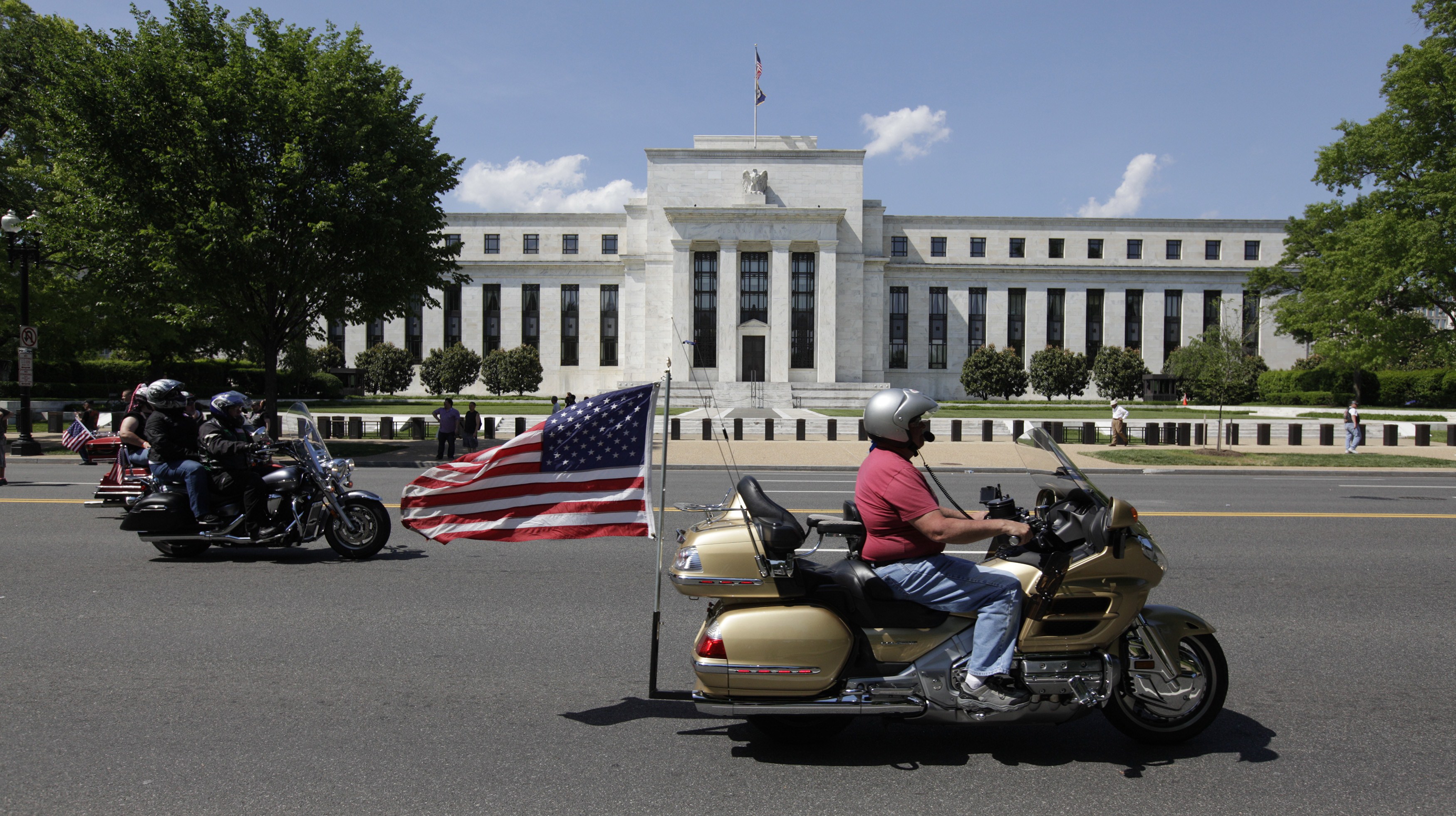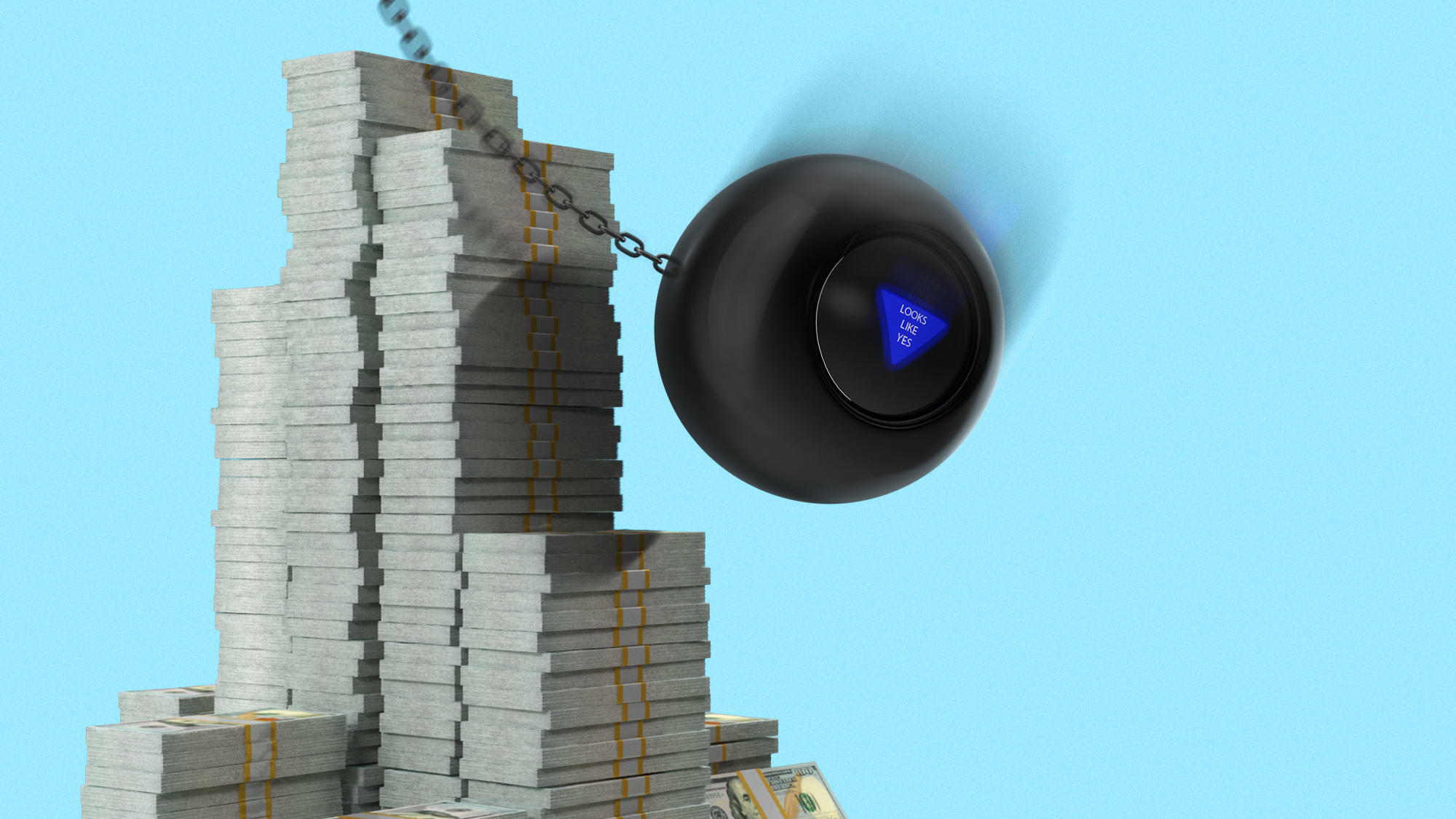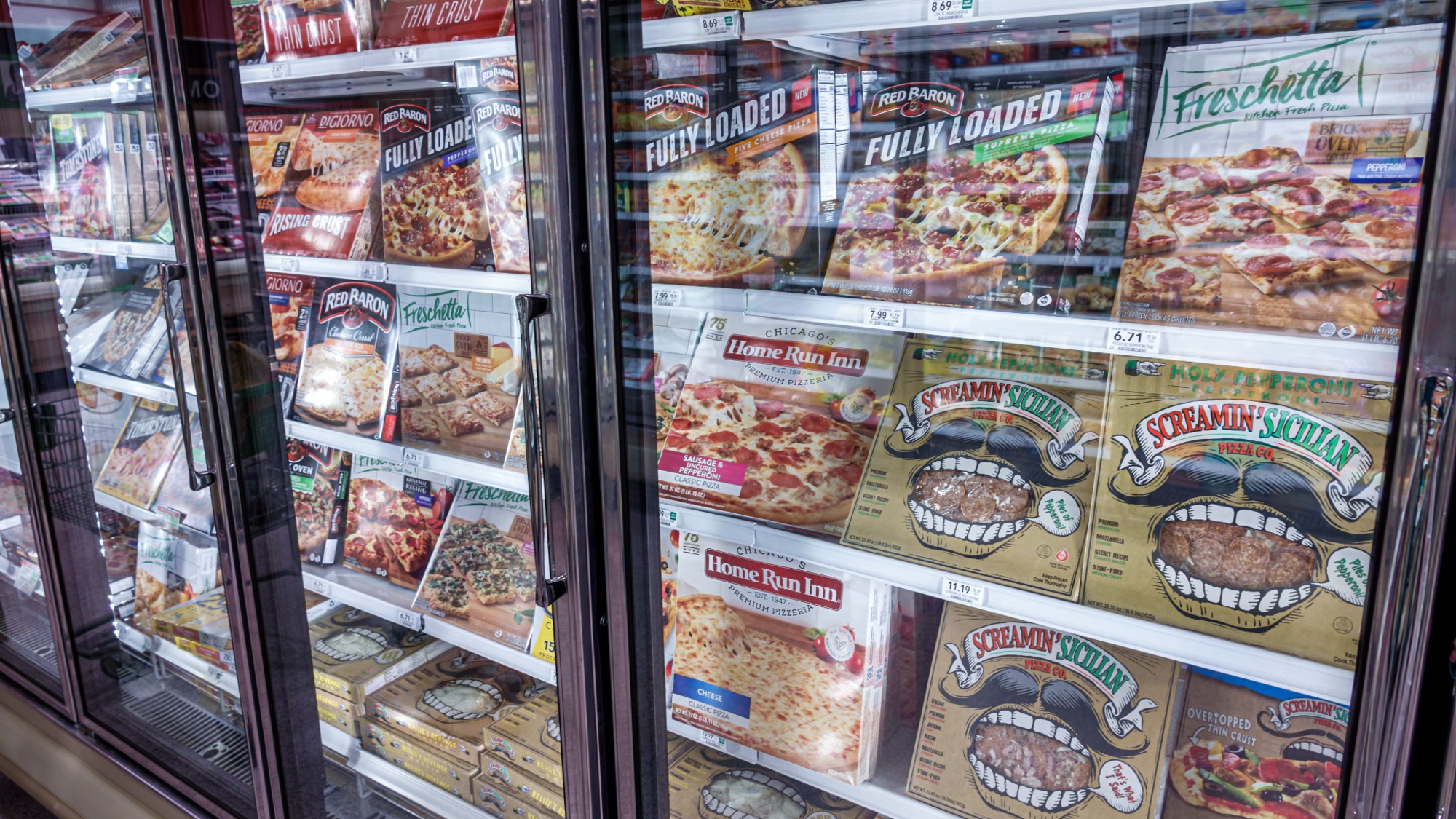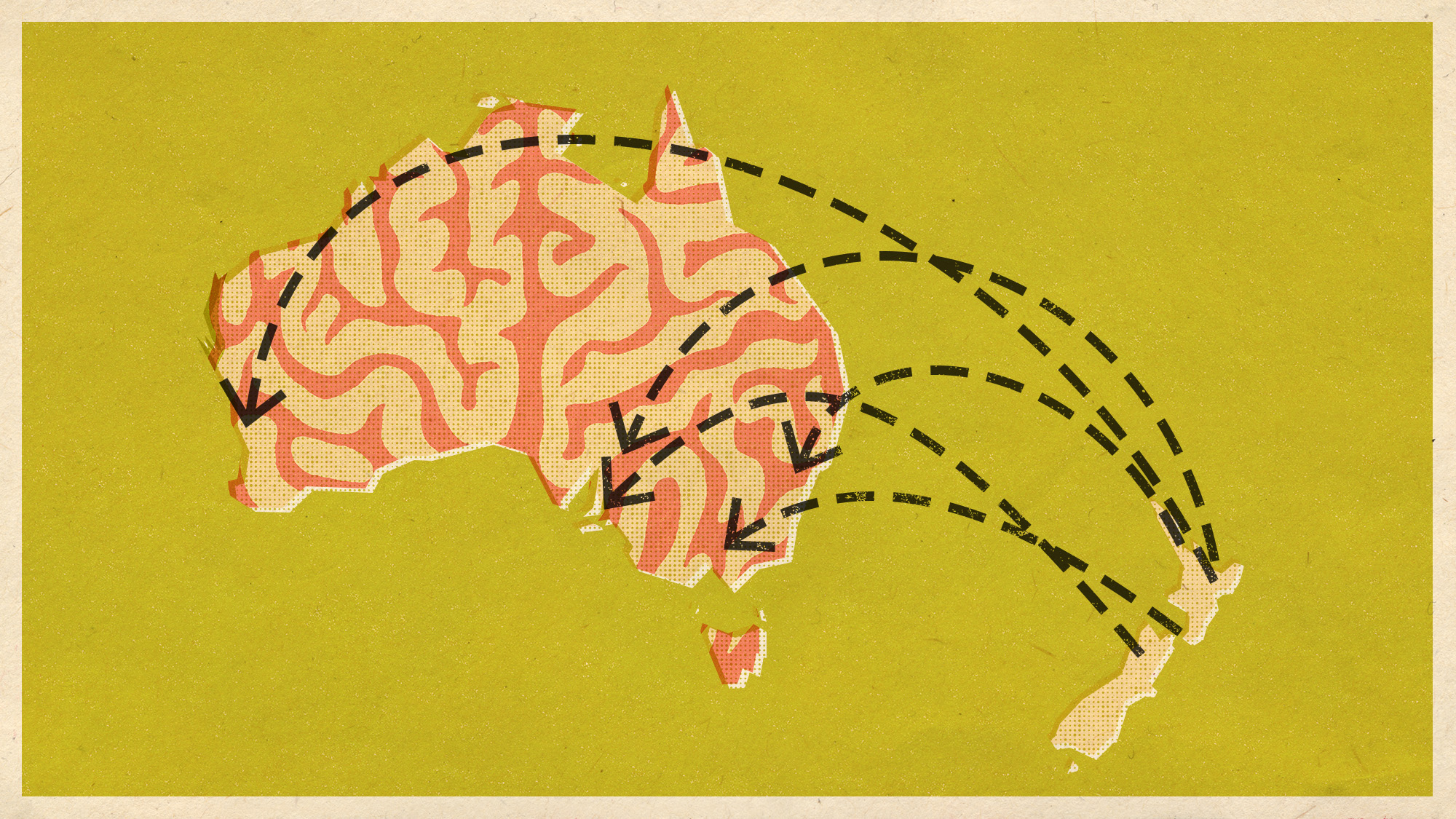Fears of US recession recede
After months of unease, the short-term outlook for the US economy looks sanguine

A free daily email with the biggest news stories of the day – and the best features from TheWeek.com
You are now subscribed
Your newsletter sign-up was successful
Fears of a US recession appear to have eased, with many Wall Street analysts saying the risk of one happening next year is now modest.
As recently as August, some models put the chances of a US recession in the next year at 50%. Now, as American and Chinese officials mull a “phase one” trade deal in public, and the US economy continues to provide promising numbers on employment and consumer spending, analysts are more optimistic.
Goldman Sachs now puts the risk level of an American recession in the next year at 24%. “Barclays says less than 10 percent. Morgan Stanley says ‘around 20’ percent,” reports The Washington Post.
The Week
Escape your echo chamber. Get the facts behind the news, plus analysis from multiple perspectives.

Sign up for The Week's Free Newsletters
From our morning news briefing to a weekly Good News Newsletter, get the best of The Week delivered directly to your inbox.
From our morning news briefing to a weekly Good News Newsletter, get the best of The Week delivered directly to your inbox.
US Federal Reserve Chairman Jerome Powell indicated as much last week, when, despite lowering interest rates for the third time in a row, he implied that the economy was now in a position healthy enough not to require further monetary easing.
“The last three interest rate cuts that we made are to be supportive so we don’t find ourselves in a slowdown that translates into something else,” said Mary Daly, the president of the San Francisco Federal Reserve, at an event at New York University. “It’s about getting the economy in a good place... so that we can continue to push against the considerable headwinds against the U.S. economy.”
She told CNN: “Expansions don’t die of old age. They’re not like people. The biggest risk is: Will the mood get ahead of the data?”
Following an event at the Council of Foreign Relations in New York, Chicago Federal Reserve president Charles Evans said on Wednesday: “I definitely think the U.S. economy is in a good place right now. I think the U.S. consumer has been very strong... I think we’re in a good place, I think policy is in a good place. I think we’ve made a nice adjustment.”
A free daily email with the biggest news stories of the day – and the best features from TheWeek.com
–––––––––––––––––––––––––––––––For a round-up of the most important business stories and tips for the week’s best shares - try The Week magazine. Get your first six issues free–––––––––––––––––––––––––––––––
One particularly encouraging sign has been the continued resilience of US consumer spending - which comprises more than two-thirds of the entire US economy - even in the face of business investment that has now contracted for two straight quarters.
Likewise the labour market - the US added 128,000 jobs in October. “For now, we can take solace that there are sufficient job and wage gains to support the economy and keep it miles away from any recession,” said Joseph Brusuelas, the chief economist at the tax and consulting firm RSM.
Goldman Sachs Group Inc CEO David Solomon, speaking to Bloomberg Television in Berlin on Tuesday, joined in the chorus of positivity. “I’ve said that I still think the chance of a U.S. recession between now and the election is small - in the distributions of outcomes, it’s a smaller outcome - I said roughly 25%,” he said.
Nevertheless, the low rates of business outlays could have a detrimental long term effect, as that would mean a “shortfall in the pace at which new innovations make their way into the production process,” writes Milton Ezrati in Forbes. “In the long term, such a slowdown threatens to impair labor productivity throughout the economy and accordingly the growth of real wages. It also threatens to detract from the profitability and competitiveness of American industry and business and so the economy’s ability to grow at acceptable levels.”
-
 Political cartoons for February 16
Political cartoons for February 16Cartoons Monday’s political cartoons include President's Day, a valentine from the Epstein files, and more
-
 Regent Hong Kong: a tranquil haven with a prime waterfront spot
Regent Hong Kong: a tranquil haven with a prime waterfront spotThe Week Recommends The trendy hotel recently underwent an extensive two-year revamp
-
 The problem with diagnosing profound autism
The problem with diagnosing profound autismThe Explainer Experts are reconsidering the idea of autism as a spectrum, which could impact diagnoses and policy making for the condition
-
 Is the US in a hiring recession?
Is the US in a hiring recession?Today's Big Question The economy is growing. Job openings are not.
-
 Is the UK headed for recession?
Is the UK headed for recession?Today’s Big Question Sluggish growth and rising unemployment are ringing alarm bells for economists
-
 Why has America’s economy gone K-shaped?
Why has America’s economy gone K-shaped?Today's Big Question The rich are doing well. Everybody else is scrimping.
-
 Is the US in recession?
Is the US in recession?Today's Big Question ‘Unofficial signals’ are flashing red
-
 Doing the hustle: Are side gigs a sign of impending recession?
Doing the hustle: Are side gigs a sign of impending recession?In the Spotlight More workers are 'padding their finances while they can'
-
 Frozen pizza sales could be a key indicator of a recession
Frozen pizza sales could be a key indicator of a recessionThe Explainer Sales of the item have been increasing since the pandemic
-
 Trump tariffs: five scenarios for the world's economy
Trump tariffs: five scenarios for the world's economyThe Explainer A US recession? A trade war with China? How 'Liberation Day' could realign the globe
-
 'Brain drain' fear as record numbers leave New Zealand
'Brain drain' fear as record numbers leave New ZealandUnder The Radar Neighbouring Australia is luring young workers with prospect of better jobs